Bridging worlds
Over a year ago, my family visited Cambodia. It was their first time in Asia and their second time outside Europe. I hadn't seen them for over a year at that point. At the same time Kiki and I were just put in charge of taking over the school. A lot was happening at once.
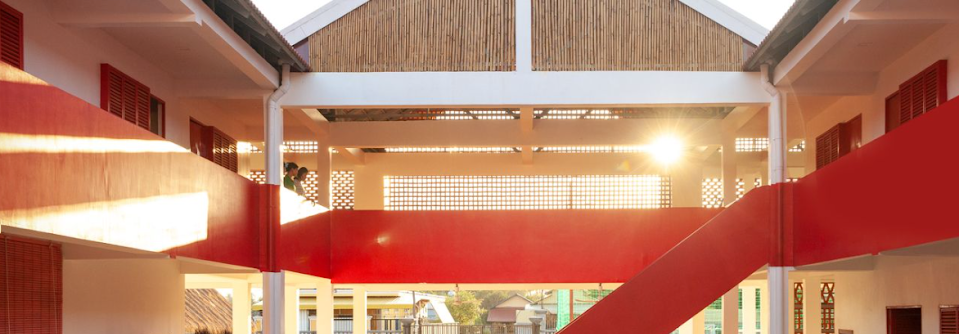
"Change is never painful. Only the resistance to change is painful."
— Gautama Buddha
The silence that followed the departure of our old staff felt like a page turning—sharp, quiet, and full of questions. As the school emptied of the familiar faces who had once shaped our daily rhythm, Kiki and I stood at a crossroads. It wasn’t just a change in personnel but a shift in spirit. These were people our students had grown to trust, admire, even love. The emotional weight of their departure sat heavy in the air like the warm, pre-monsoon haze over Siem Reap.
To help our students through the transition, we paused classes and exams for several weeks—space to breathe, feel, and process. The school grounds transformed into a place of healing. We filled the days with group activities, storytelling sessions, and moments of shared laughter—an effort to preserve the warmth of community even as we stepped into the unknown.
And then came our surprise guests: mother and daughter S., longtime school supporters. They arrived with bright smiles and eager hearts, and immediately began connecting with the students. It was a balancing act—we wanted to honor their generosity without shifting the emotional focus away from our students. But their visit turned out to be beautifully serendipitous. Their compassion and involvement offered another kind of comfort to our community, and we were deeply grateful for that.
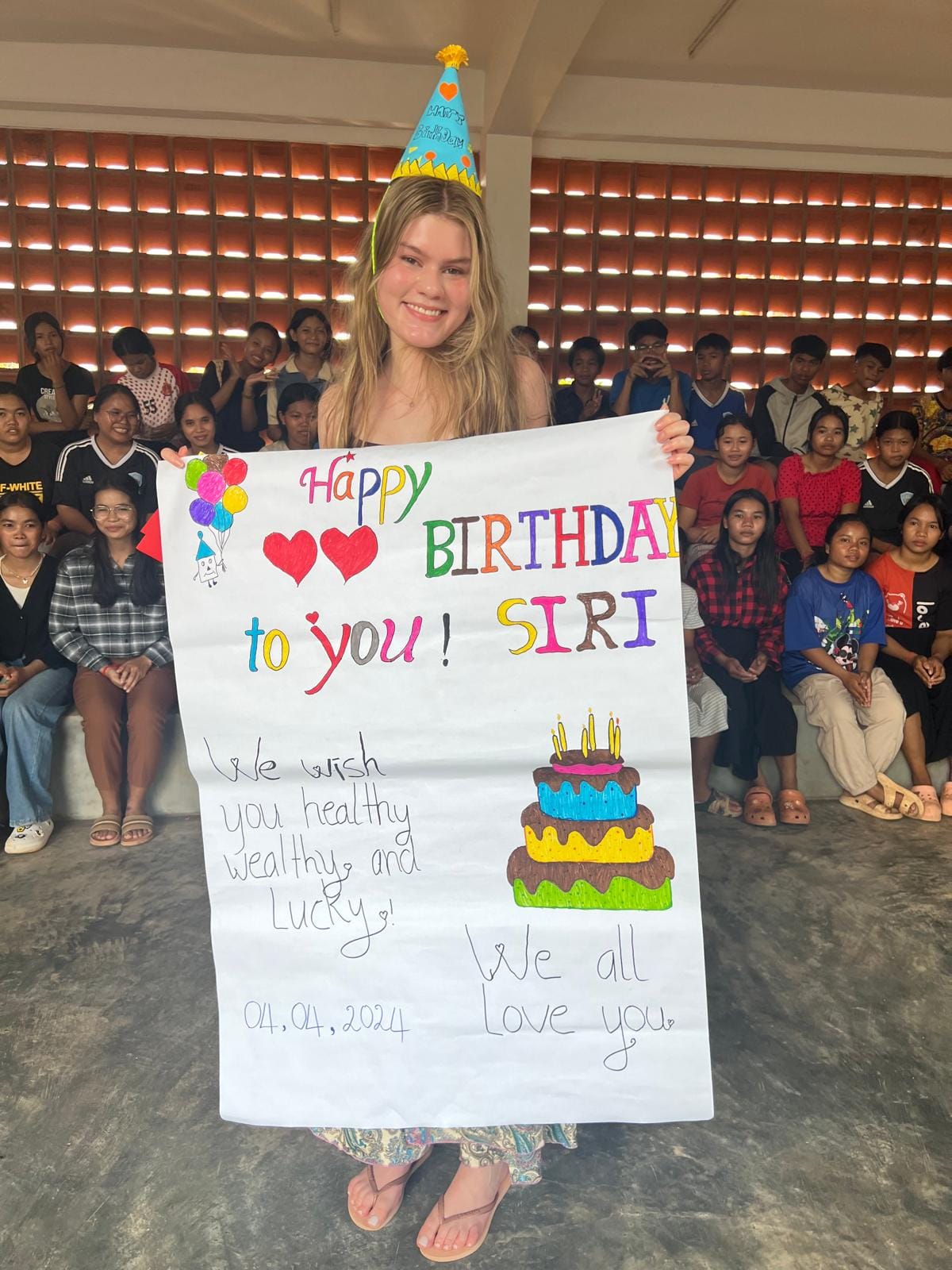
The transition was carried on the shoulders of more than just us. In his final week in Cambodia, my friend Matthieu volunteered at the school, bringing energy and movement into the stillness with sports games under the sticky sun. Summer, ever the thoughtful presence, offered our students safe spaces to talk, laugh, cry—whatever they needed. They both left behind something intangible, but essential.


On their last night, we thanked them by throwing a Cambodian celebration: shared food, splashes in the pool, and music blasting from the speakers into the night sky. This kind of joy only surfaces after you’ve weathered a storm together.
With the volunteers gone and a quiet calm returning, Kiki and I finally exhaled. We had just taken our first steps in calculating a budget—something we were oddly proud of. We reopened classes focusing on community and slowly lifted our eyes toward the Kulen mountain.
That’s when we realized something startling—none of the students’ families had ever been invited to the school. They had no idea where their children lived, learned, and laughed. We decided to change that.
Thus began our very first Project-Based Learning (PBL) initiative: Family Day. Family Day would become one of the most impactful projects we’d ever implement in collaboration with the students. They helped organize activities and designed a school tour. The anticipation built with every lesson.
While Kiki continued teaching English, I guided the PBL class through the logistics. Around this time, we offered a teaching position to Ro, a school graduate and our very first official hire. Seeing her step confidently into the role, now known as Teacher Ro, felt like watching the school take its own breath for the first time.
In the final week of the term, another key figure entered the scene: Pheak. We met her at the Giant Puppet Parade—a powerhouse of energy and care. We had been dreaming up the idea of a "big sister" presence at the school, someone responsible, empathetic, and present. Pheak was all of that and more.
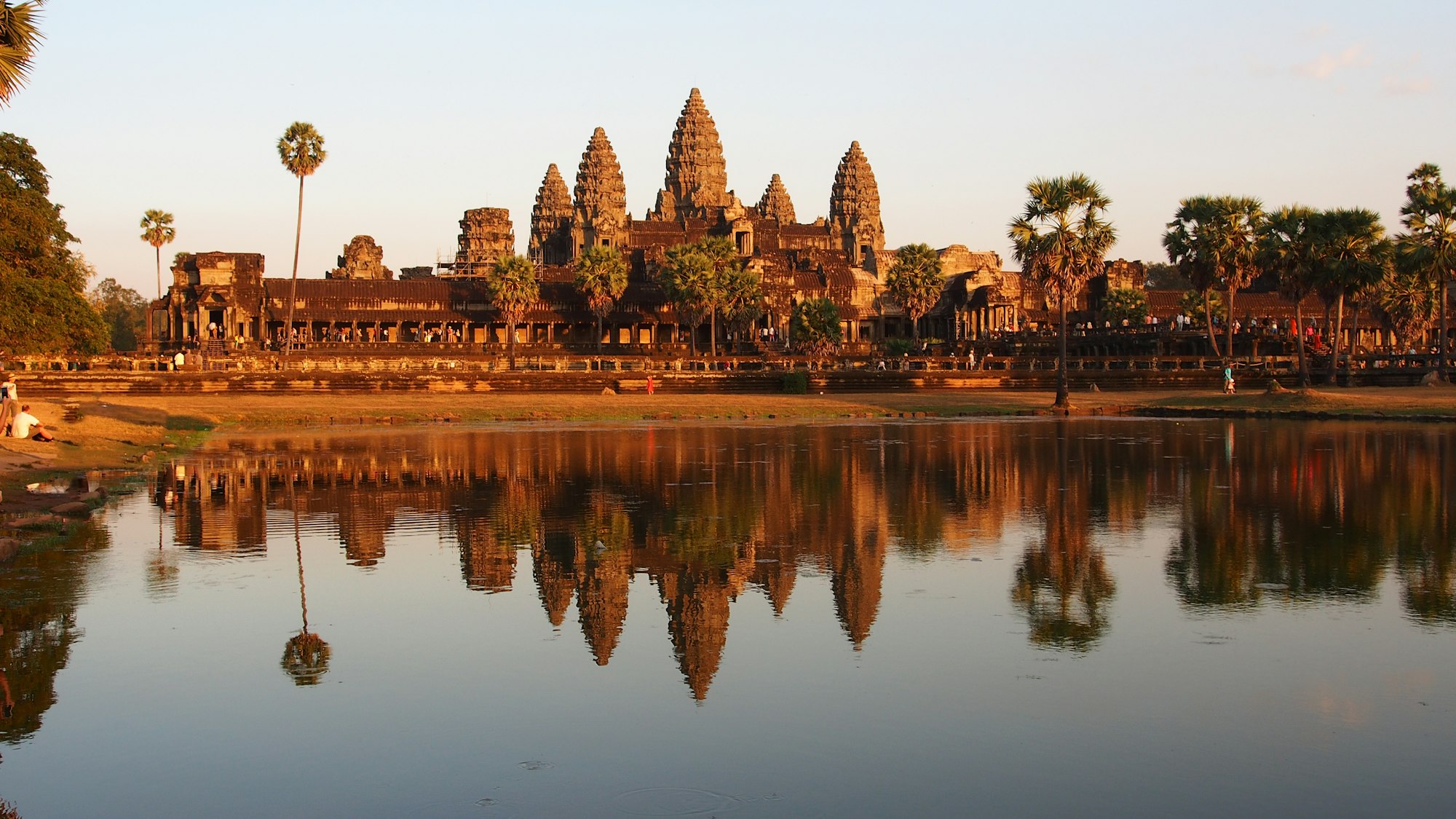
To celebrate the end of term, we invited Pheak and her all-female Khmer drum band—the Lady Drummers—to give a cultural performance and workshop. The school pulsed with life as traditional rhythms echoed through the grounds. Students danced, clapped, and beamed. It wasn’t just a show. It was an awakening of pride and joy.
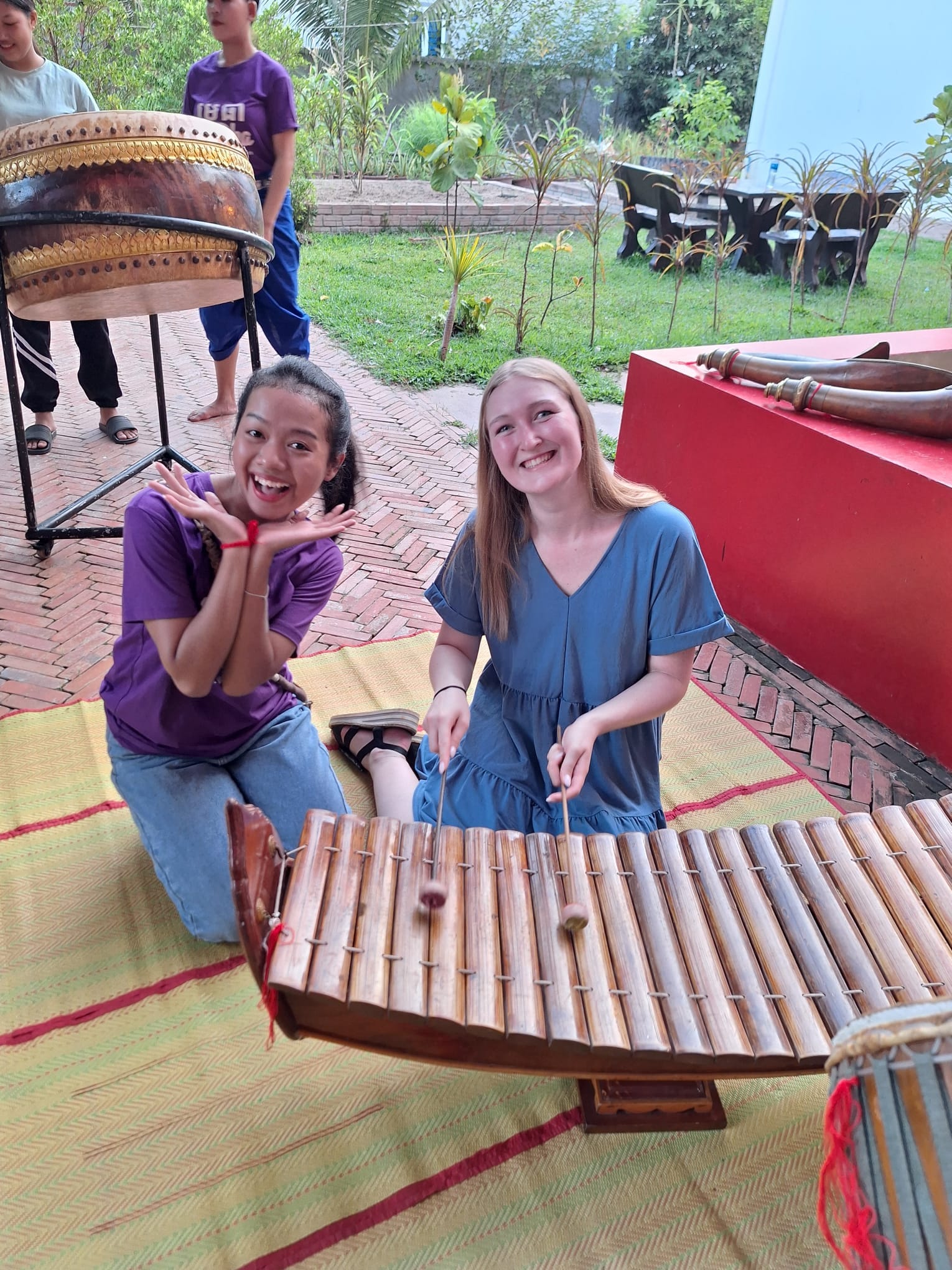
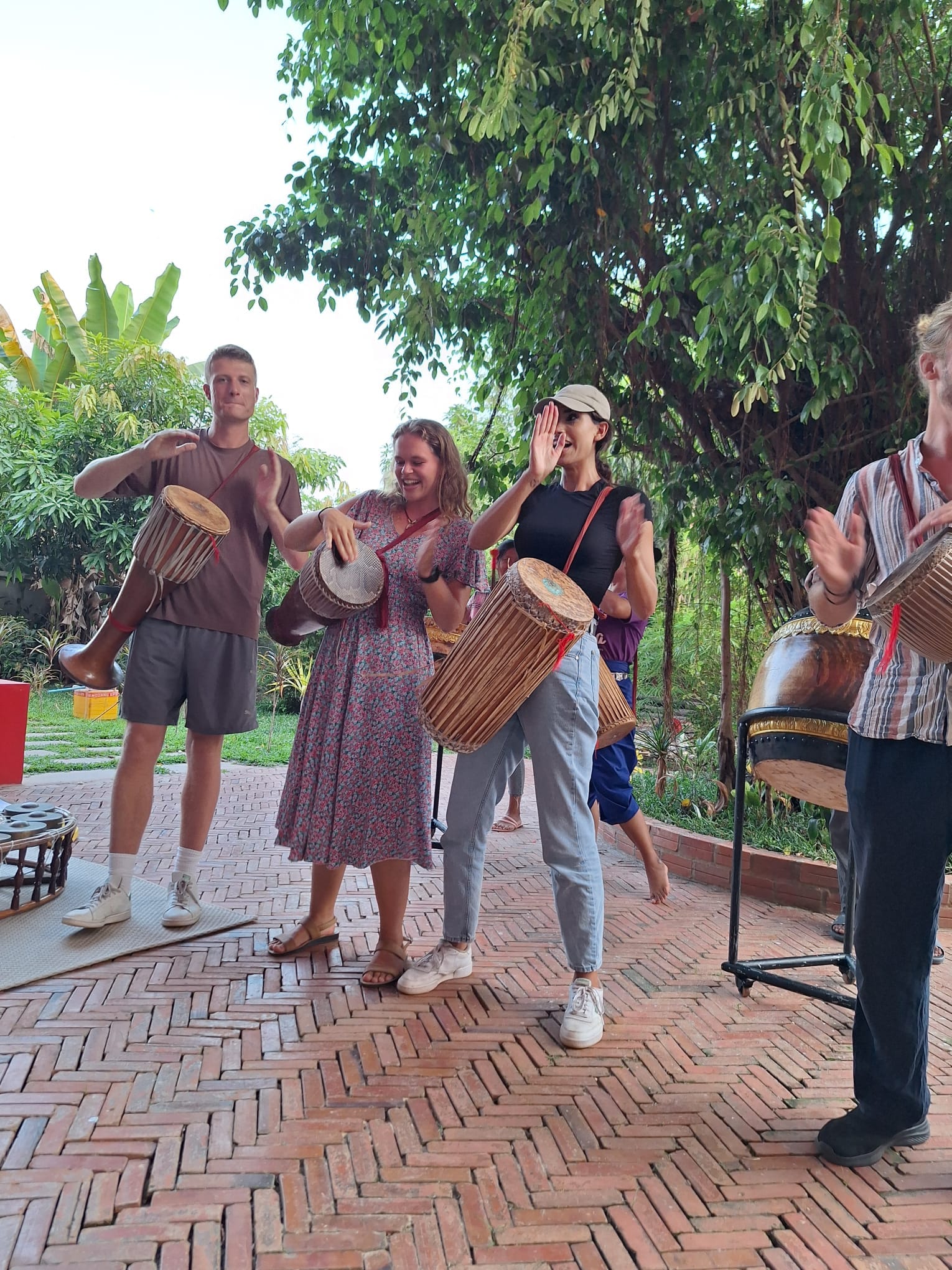
That day, our visitors D. and I. joined us in the crowd, and my family, who had just arrived in Cambodia, stood by our side.
The next morning, the students packed up and returned to their families on Kulen Mountain. We watched the trucks drive off, full of tired, smiling faces, and held our breath.
Would they come back?
We didn’t have long to wonder. The month ahead demanded everything from us: drafting a student code of conduct, assessing each student’s health, navigating electricity bills, replacing torn uniforms, and somehow hiring a full staff. We were still acting as teachers, administrators, fundraisers, and dorm parents all at once.
But in that flurry of responsibility, something had shifted.
The school started to improve from that moment on.

